
123—
‘Leaky Gut’
I’ve been saying this for years — I really believe that bread gets unfairly vilified.
Many people tell me that they are intolerant to bread when I’m discussing their health with them. However, I can’t accept this as fact until I question them to establish the basis for this ‘accusation’:
When was the last time you just ate bread — with nothing on it?
Most people always have some kind of spread or topping on their bread which might be the real culprit.
WHEN YOU WERE EATING BRead, How many times did you eat it per day/week?
Maybe it wasn’t the ‘fault’ of the bread at all. Maybe, it was ‘user error’ — you caused the issue from over-consuming it 😬
IF YOU’RE EATING COMMERCIAL BREAD, How do you know it’s not the other ingredients in the bread, OR THE WAY ITs PRODUCED that you’re reacting to — rather than the wheat or gluten?
This could include yeast, sugar, dairy, seeds, oils, additives (e.g. fast-acting reducing agents, slow-acting oxidising agents, emulsifiers, enzymes, acids, mould inhibitors), or, well, grain-sprays.
Click here for more blog-posts that I’ve written on food intolerance.
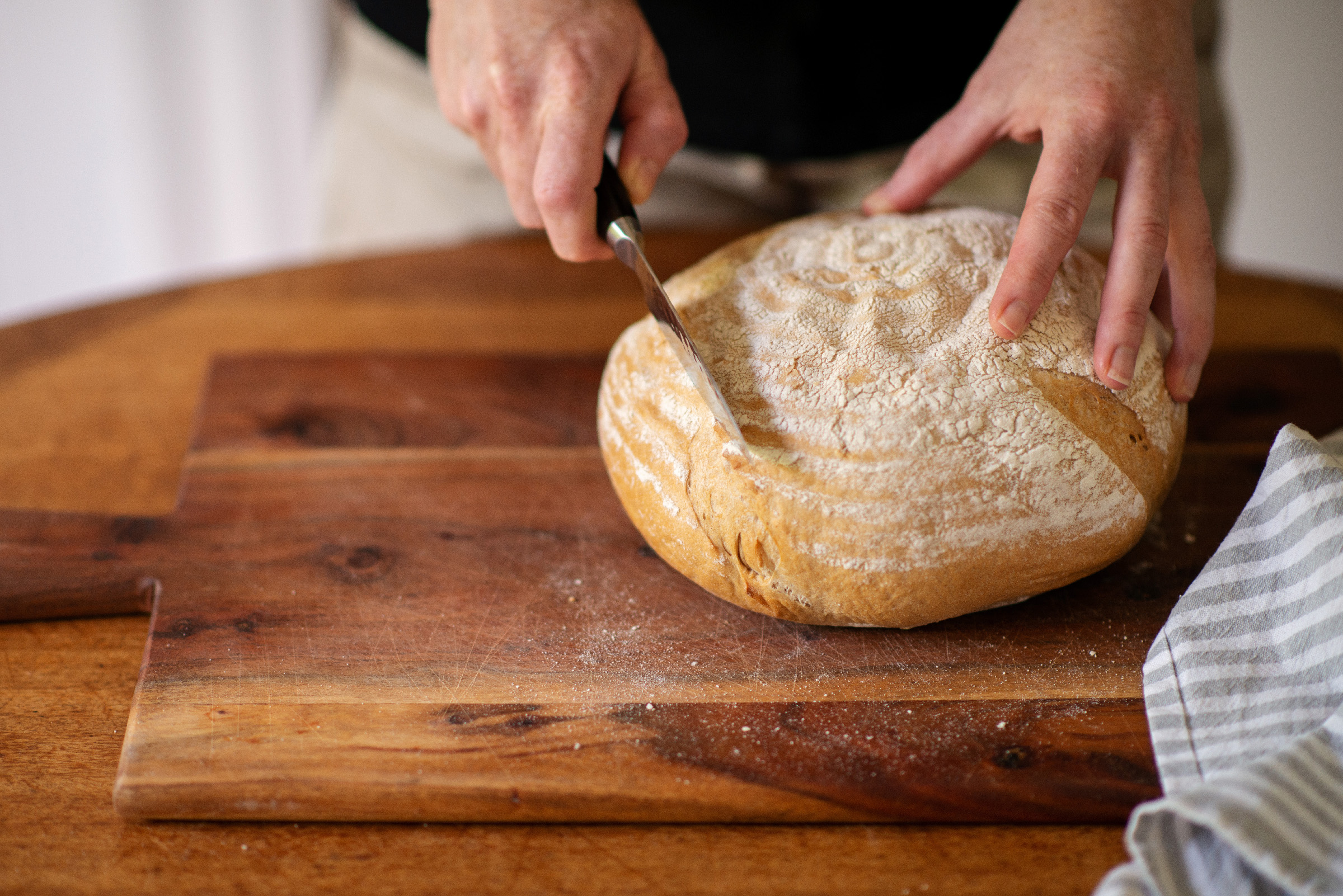
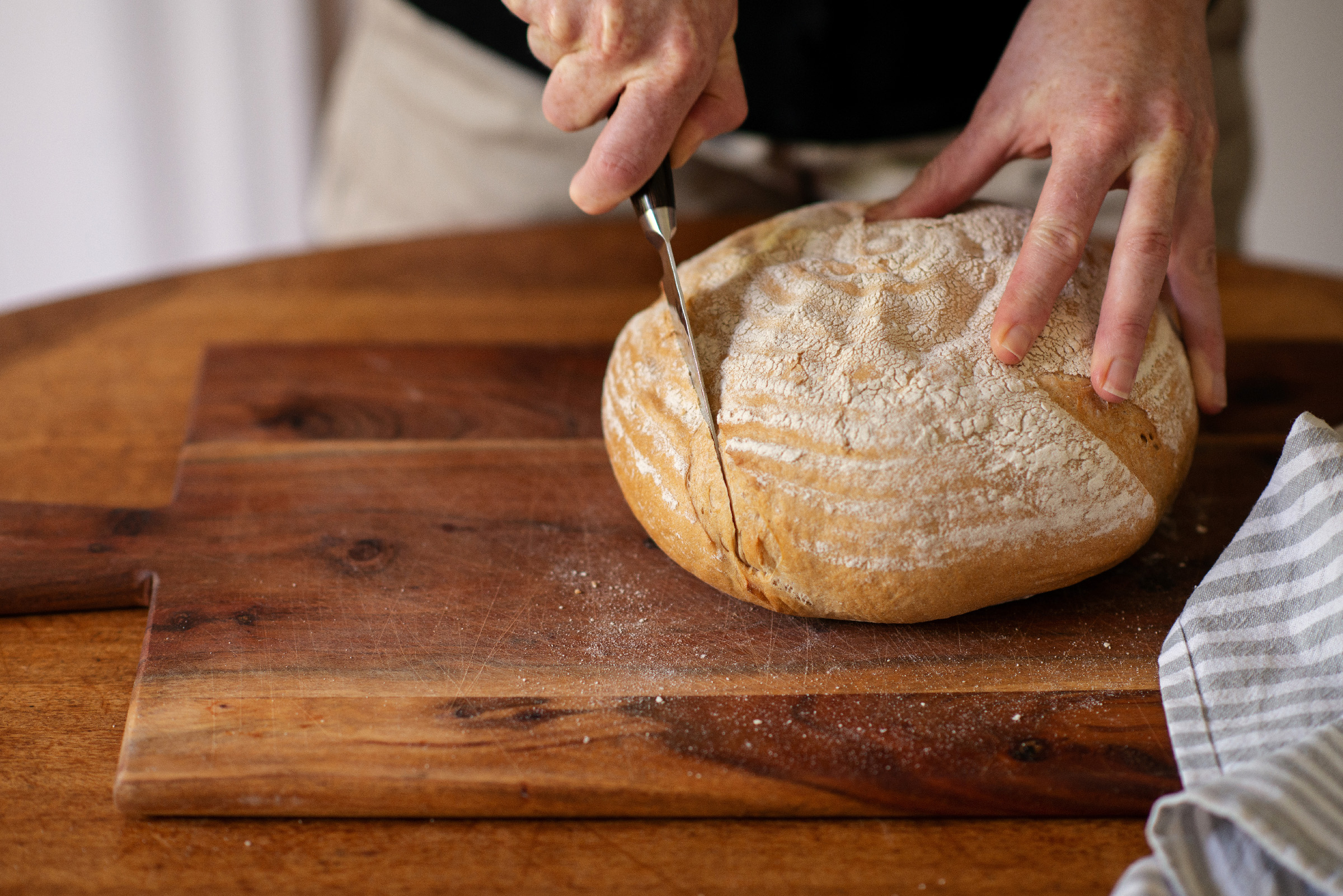
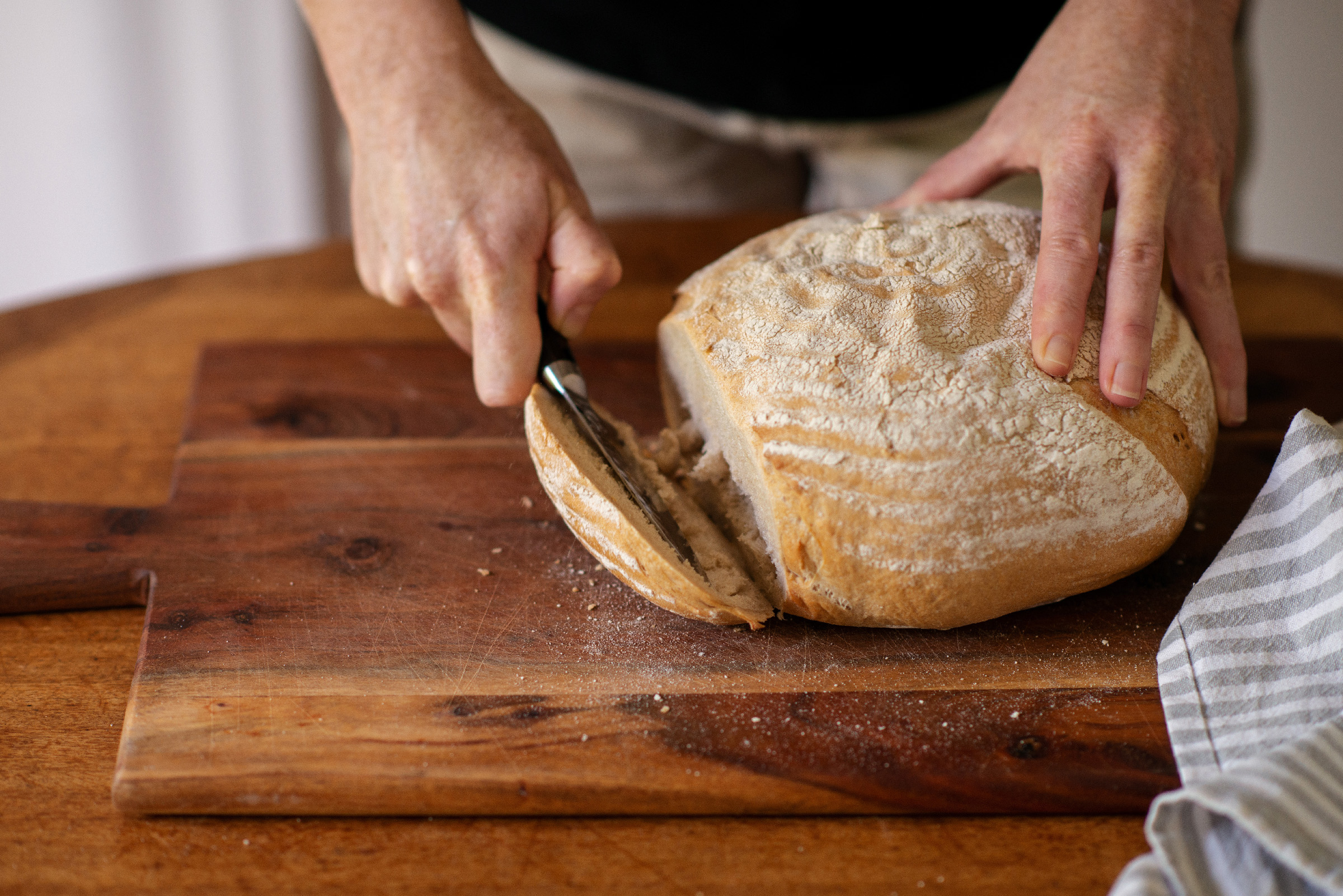
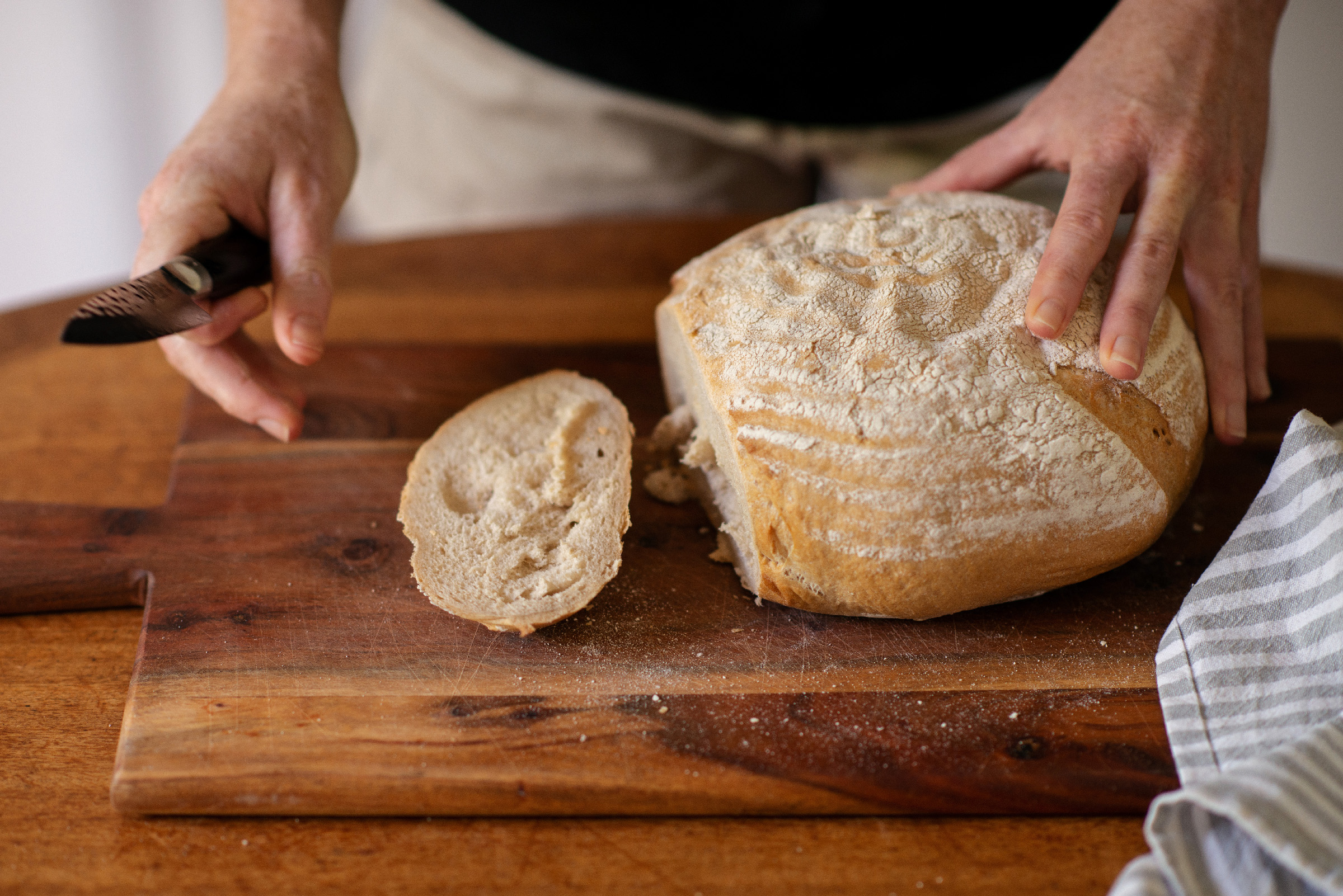
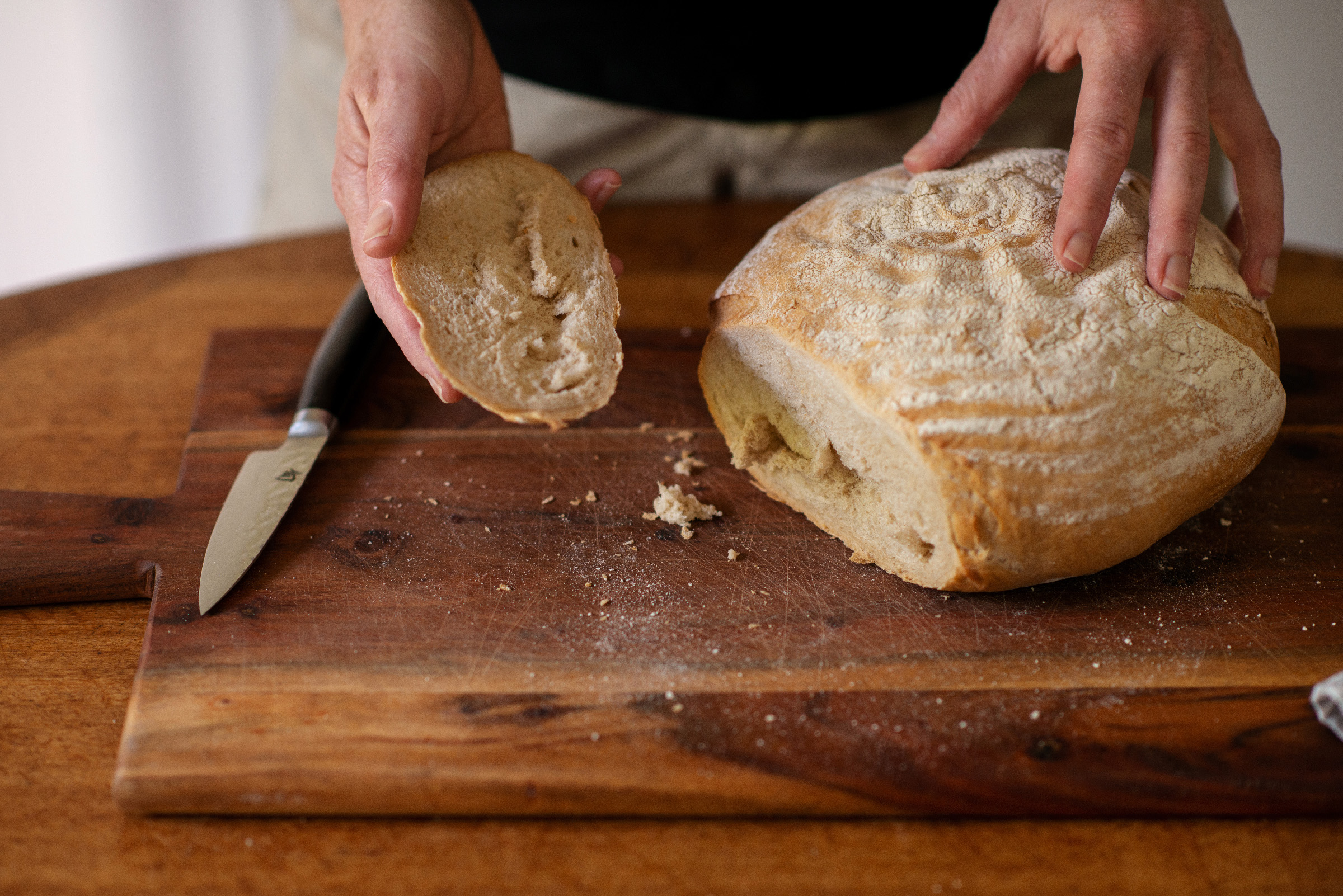
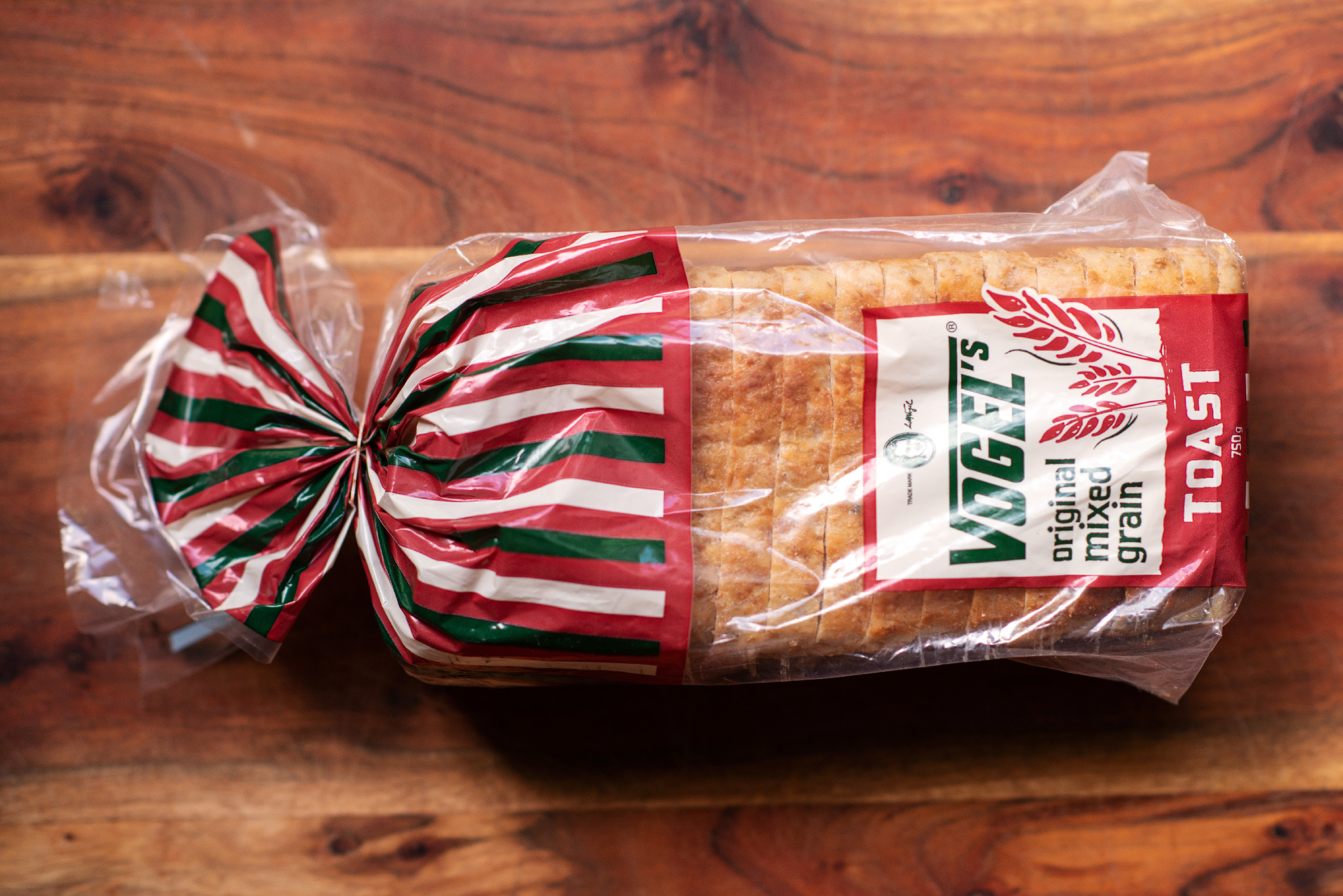
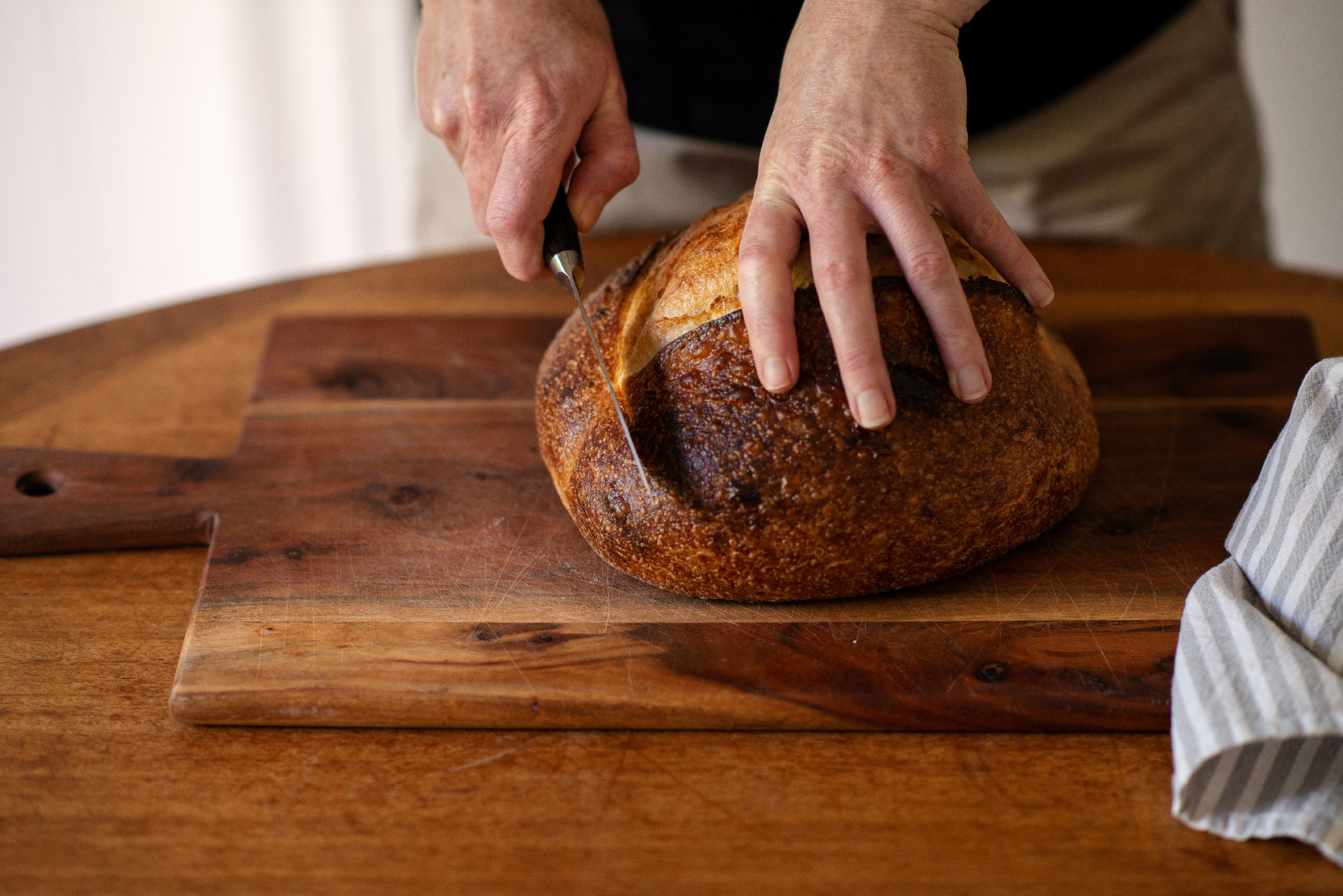
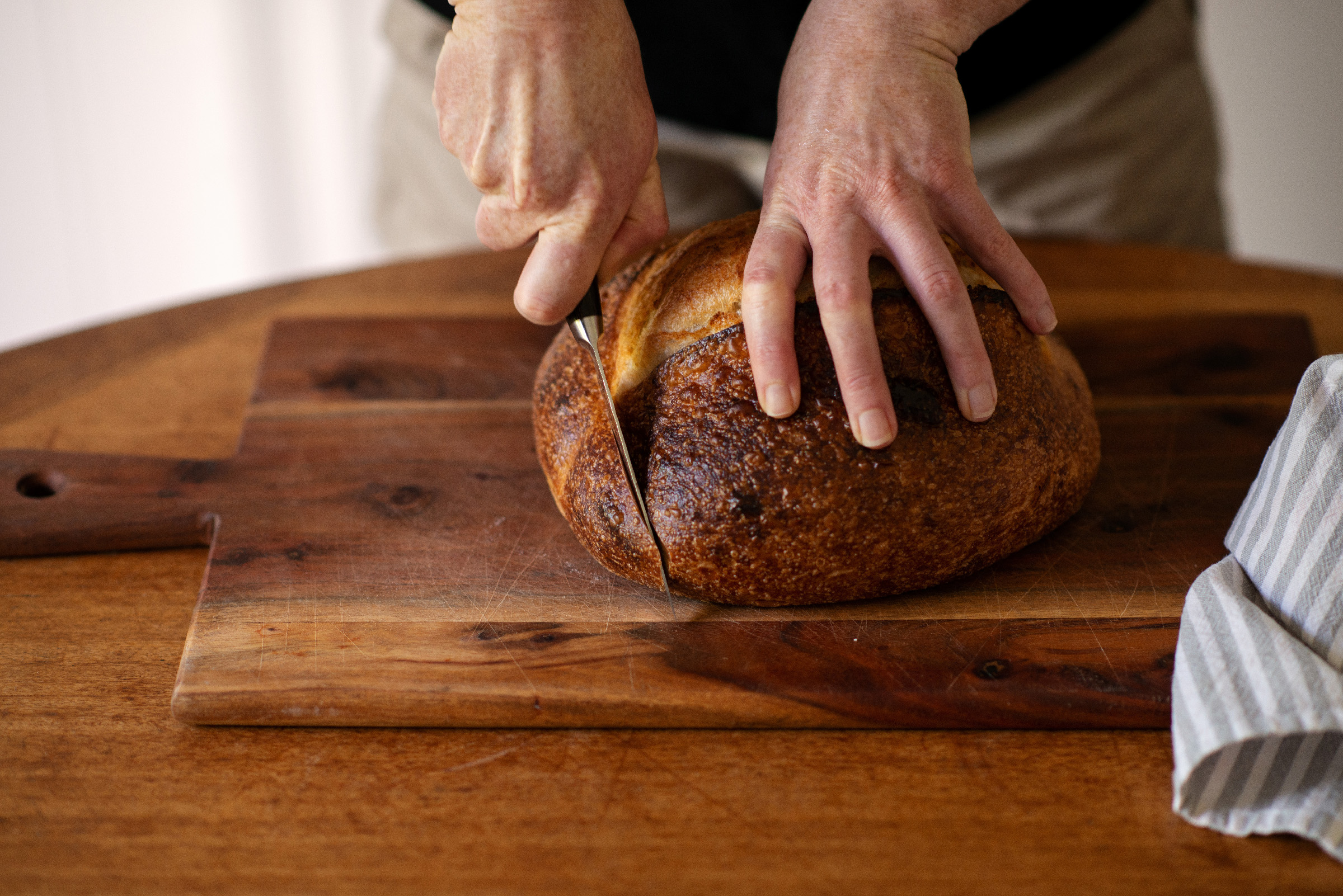
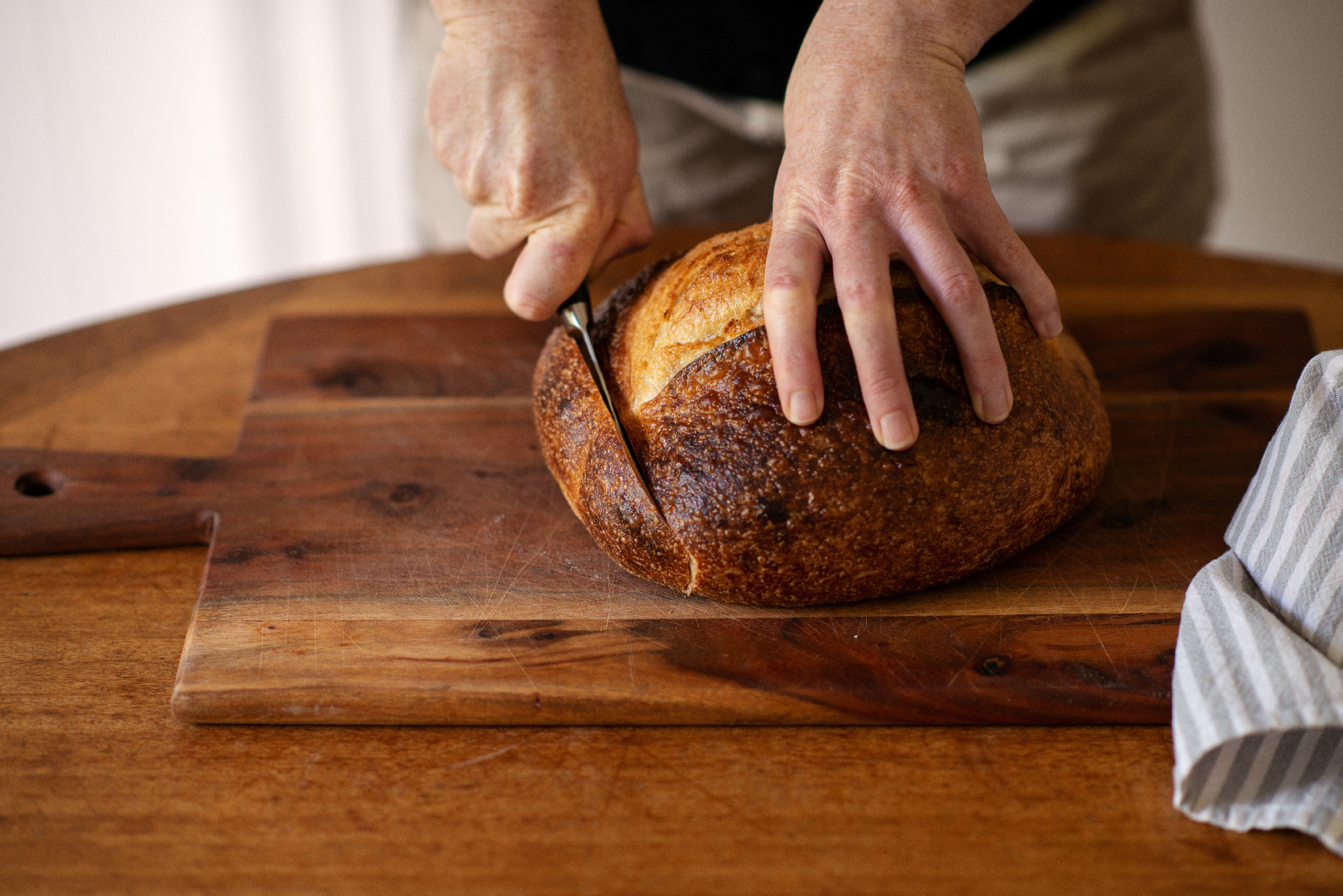
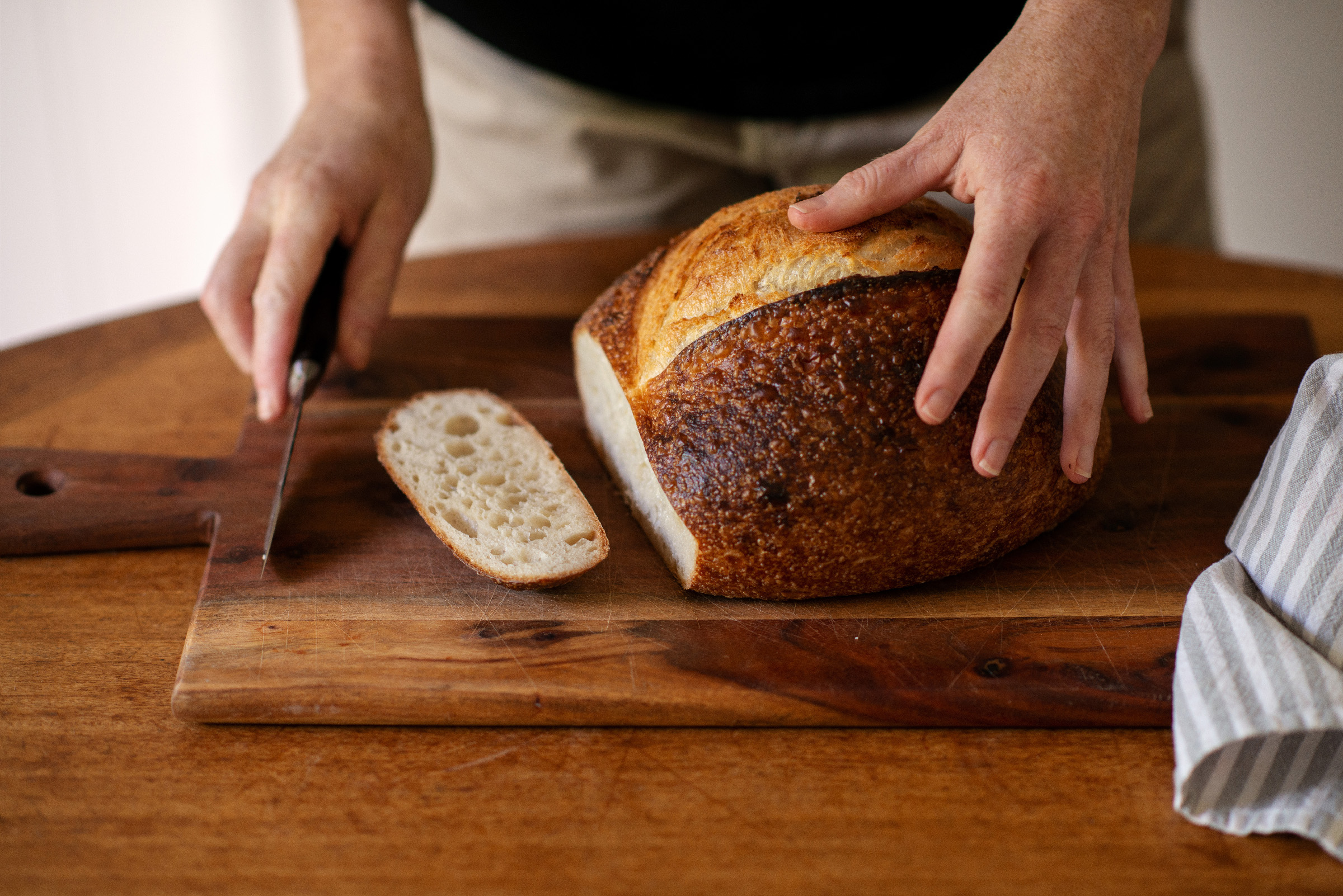
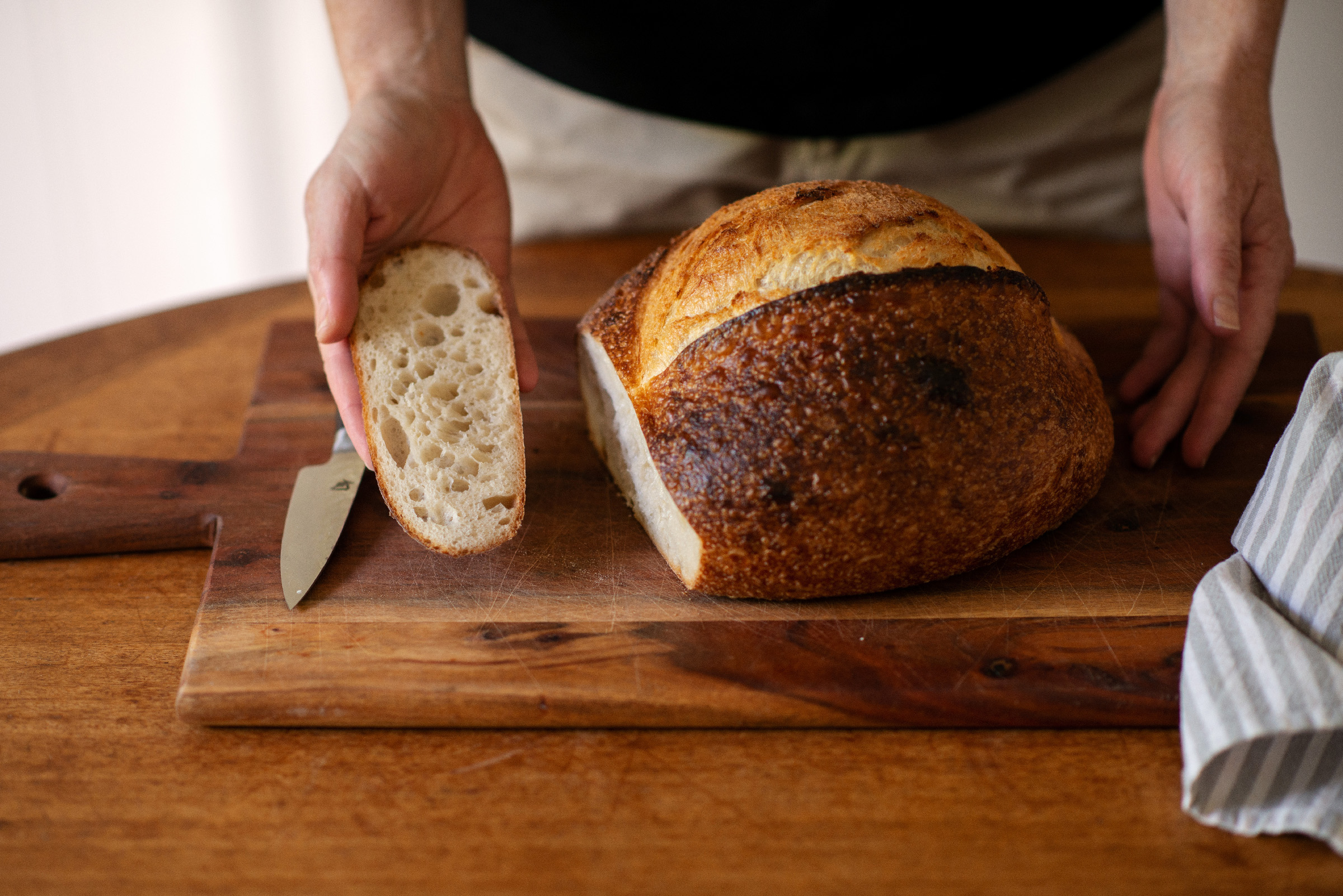
With real sourdough, you almost need to take to it with a small saw. And to eat it, you need to embrace your inner viking and tear at it like your life depends on it!
There’s a huge difference between eating (assimilating, and digesting) ‘proper’ bread, to eating that bread-like substance that they try to pass off as the ‘Real McCoy’ at the supermarket!
You should aim to get a loaf that has been naturally leavened, which means it has been slowly fermented using minimal intervention.
My advice therefore is to find some local Artisan (aa·tuh·zan) sourdough bread. This type of bread is produced using non-industrialised methods. These traditional/natural processes are often handed down through generations and are in constant danger of being lost to the conventional methods (no time method/short term dough process) which have been deployed to feed the masses since the 1950s.
You won’t find this ‘proper’ bread at the supermarket — but rather, from a boutique/niche/small store.
With Artisan sourdough, you can be sure of the following:
But, it will come with a free brown paper bag with every purchase 🤗
It will contain ‘a’ grain, some filtered water, and some sea salt.
No added ‘anything else’.
(As you should know by now, I’m all about keeping it simple, sweeties!)
Sourdough bread is made by the fermentation of dough using naturally occurring lactobacilli (bacteria) and yeast.
The lactic acid produced by the bacteria gives it its sour taste and extends its shelf-life.
Click here for more information on fermented foods.
Note: The Supermarket sourdough (above) smells, and tastes, yeasty and dry — like finely milled sawdust 😝 While the Artisan Sourdough bread tastes, well, sour, moist, and dee-licious.
‘Proper’ sourdough is more expensive than commercial bread. This is because making Artisan sourdough bread requires actual bread-making skills, and because it takes much longer to bring this product to market.
And, because of these factors, it can only be produced in small batches — meaning it’s excloooosive, darlings!
If you’re lucky, you’ll also be paying for organicky-goodness, and/or that the grain your bread is representing has been sustainably sourced from the country that you reside in.
These qualities make it perfect for your body’s recognition of this food-stuff.
Note: You’ll know this is so, because the company will be boasting about it. Just like I like to talk-up the fact that I’m a degree educated Naturopath who has been practicing full time since I finished training back in 2007. I’ve been fermenting my experience daily for well over a decade 🤗😉
This bread will give your jaw muscles a powerful work-out. Not only will this help to work the tension out of these muscles, but it will also help to strengthen them, and therefore to strengthen your jaw. All of this helps you to maintain the integrity of your ‘bits’, as well as improving your aesthetic 🙌
And, because you’ll be eating slower — with all the very deliberate chewing, this will tremendously improve your digestion, and you’ll feel fuller quicker .
Artisan bread is substantial, and satiating. Therefore it is naturally filling, it helps to manage your weight, and you don’t go through the loaf so easily (which is good from a cost perspective).
Note: I personally found that when I used to eat supermarket bakery buns/bread that I easily popped on weight. However, when I eat Artisan sourdough bread I easily maintain a comfortable weight 😉
I’m a big fan of the loaves from Daily Bread (maybe not so much their smoked rye, or sesame seed as I’m not keen on the taste).
However, you should be able to get Artisan sourdough loaves from an authentic French, Italian, or Turkish bakery.
Here’s some yummy ‘sammy’ ideas for you:
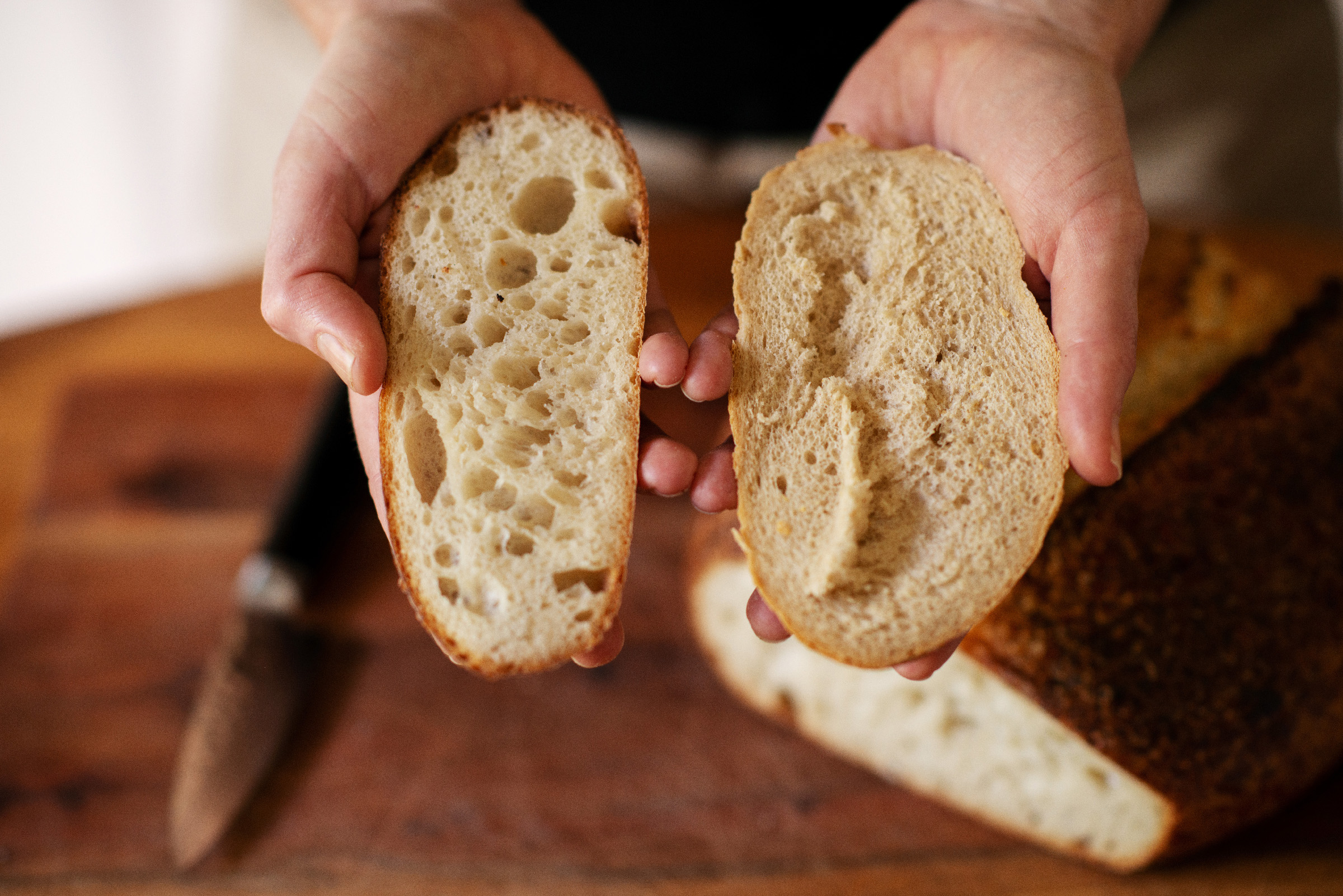
If you’re Vegetarian, or Vegan (and therefore restrict certain food-groups from your diet such as meat, seafood, dairy, and/or eggs), then you simply cannot afford not to eat grains.
Eat Artisan sourdough! Having its ‘pre-digested’ gluten, and its lower phytate levels, makes this grain-containing-vessel more nutritious and easier for YOU to digest 🤗
Grains are fabulous for providing you with the following nutrients: protein (it’s ‘meat’ for vegetarians), vitamins (notably B vitamins), dietary fiber, and various other phyto-chemicals.
Don’t just take my word for it, or anyone else’s for that matter — experiment with eating this stuff yourself!
That way, we’ll soon figure out what’s what. 🤗
If you’re going to eat bread for your grain intake, then please don’t eat it for every meal.
And, if you’re going to eat Artisan Sourdough for your grain intake, then don’t include other varieties of grains in your diet, otherwise you’re just asking to develop a food intolerance by overdoing it (e.g pasta, couscous, pizza, wraps, etc).
Give yourself an allowance of eating a serving of Artisan Sourdough no more than once per day. And, if you know you’re going to eat other forms, then work this into the whole equation.
Note: Listen to your body. When it tells you that you’re sick of eating this stuff – stop! Don’t just keep eating it because you used to like it, it’s convenient, or you’ve gotten into a habit.
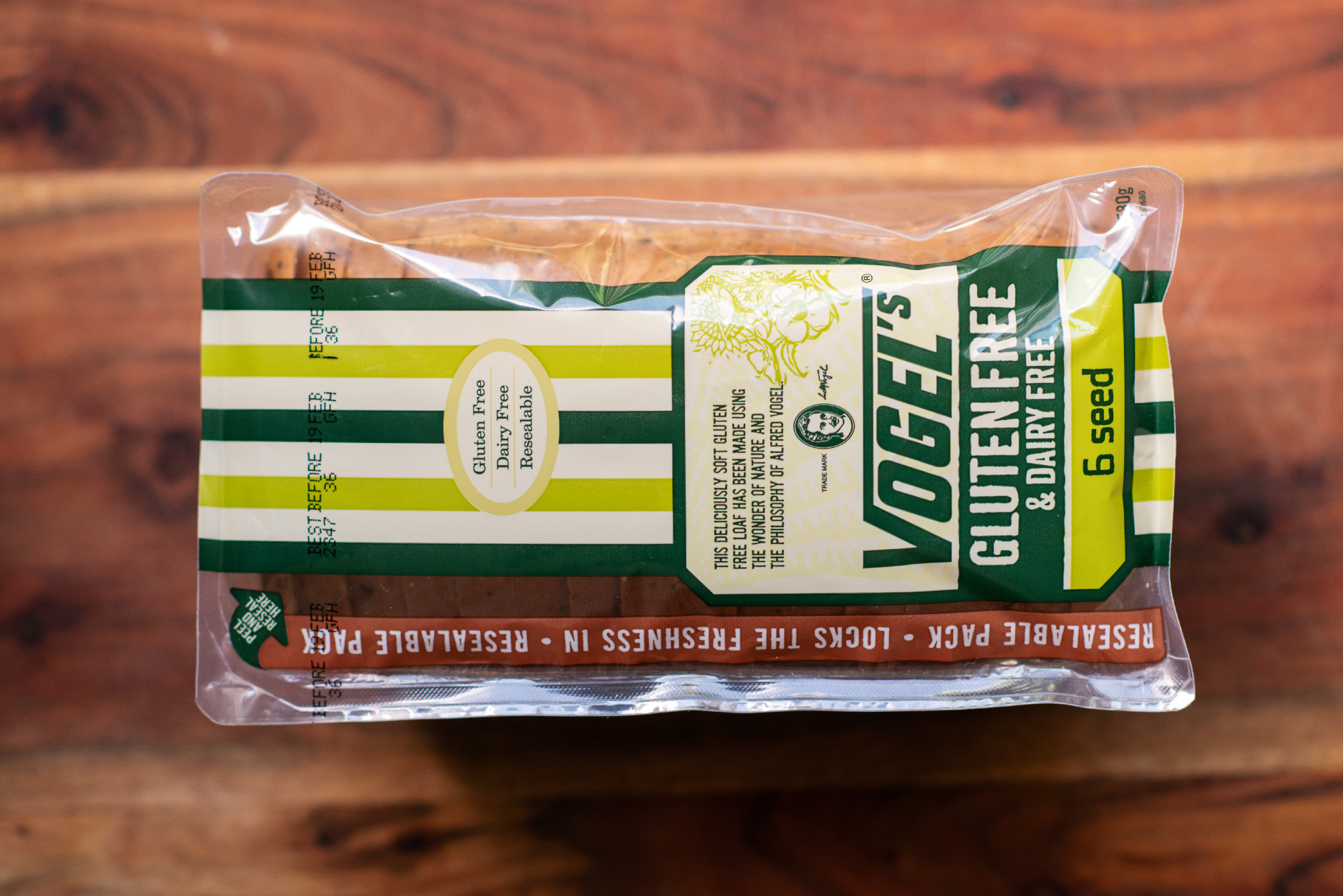
Lisa Fitzgibbon is a degree qualified (2006), experienced and registered Naturopath & Medical Herbalist. She runs her own private practice – OOMPH in Grey Lynn, Auckland, New Zealand.
Lisa has been involved in the Natural Health industry for 16 years. She draws on her professional training and experience, as well as her own personal experience to bring you realistic, holistic health advice.
Book onlineSubscribe to LISA SAID SO
Subscribe to the LSS newsletter to get updates on a very irregular basis.
Sorry for the interruption!
You seem to be interested in what Lisa has to say. To be updated when new articles are published, or we have news to share, enter your email below. Thanks!